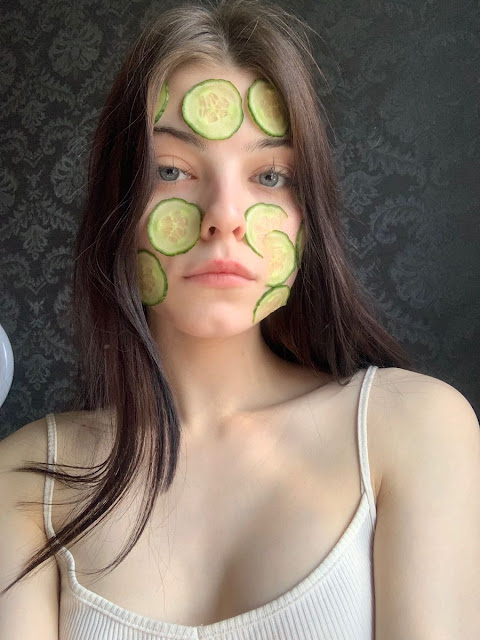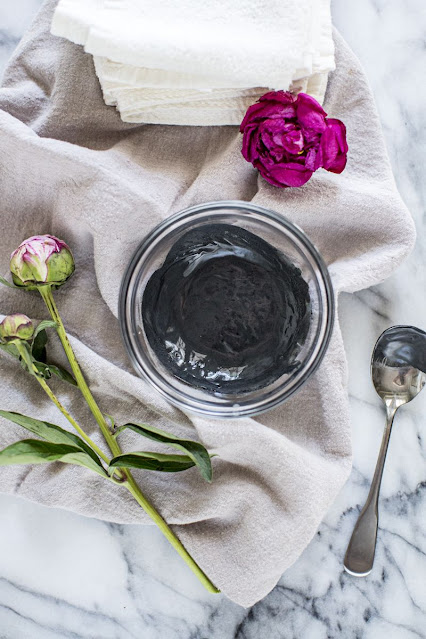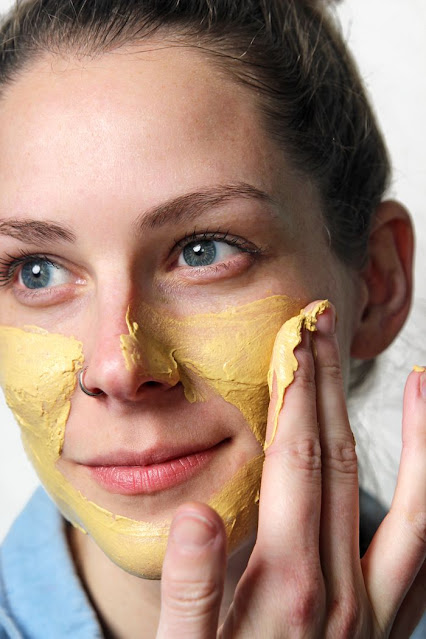DIY face masks you can try at home if you have acne-prone skin
Struggling with acne can be disheartening, but the journey to clear and glowing skin doesn't have to be an uphill battle. Beyond the realm of store-bought products, nature provides us with an array of ingredients that can work wonders for acne-prone skin. Homemade face masks are a natural and effective way to address acne concerns. In this comprehensive guide, we present not just a handful, but a treasure trove of best homemade face mask recipes for acne. Get ready to embark on a journey towards radiant skin that starts right in your kitchen.
1. Green Tea and Aloe Vera Mask
Ingredients:
- 1 green tea bag
- 2 tablespoons of fresh aloe vera gel
Instructions:
- Steep the green tea bag in hot water and let it cool.
- Mix the aloe vera gel with the cooled green tea.
- Smooth the blend onto your face, allowing it to rest for a duration of 15 minutes.
- Rinse off with lukewarm water.
Green tea is packed with antioxidants that help reduce inflammation and fight bacteria, while aloe vera provides a soothing touch, helping your skin heal faster.
2. Banana and Turmeric Mask
Ingredients:
- 1 ripe banana
- 1/2 teaspoon of turmeric powder
Instructions:
- Mash the ripe banana until it's smooth.
- Mix in the turmeric powder to form a consistent paste.
- Apply the mask evenly and relax for 20 minutes.
- Wash off with cold water.
Bananas are rich in vitamins and minerals that nourish the skin, and the anti-inflammatory properties of turmeric can help calm irritated acne-prone skin.
3. Cucumber and Mint Mask
Ingredients:
- 1/2 cucumber (peeled and blended)
- A handful of fresh mint leaves
Instructions:
- Blend the cucumber until it's a smooth puree.
- Crush the mint leaves to release their oils and mix them with the cucumber puree.
- Spread the mixture onto your facial skin and allow it to rest for a duration of 15 minutes.
- Rinse off with cool water.
Cucumber's cooling effect combined with mint's astringent properties make this mask perfect for soothing inflamed skin and reducing redness.
4. Apple Cider Vinegar and Clay Mask
Ingredients:
- 1 tablespoon of bentonite clay
- 1 teaspoon of apple cider vinegar
Instructions:
- Blend the bentonite clay with apple cider vinegar to form a smooth paste.
- Apply the mask, avoiding the eye area, and leave it on for 10-15 minutes.
- Rinse off with warm water.
Bentonite clay absorbs excess oil and impurities, while apple cider vinegar's acidic nature helps balance the skin's pH levels, preventing further breakouts.
5. Strawberry and Yogurt Mask
Ingredients:
- 3 ripe strawberries
- 2 tablespoons of plain yogurt
Instructions:
- Mash the strawberries until they're smooth.
- Mix in the yogurt to create a consistent mixture.
- Apply the mask and allow it to perform its wonders for a duration of 15 minutes.
- Wash off with lukewarm water.
Strawberries are rich in salicylic acid, a natural exfoliant that unclogs pores, and yogurt provides probiotics that promote healthy skin.
6. Egg Yolk and Oatmeal Scrub
Ingredients:
- 1 egg yolk
- 2 tablespoons of oatmeal
Instructions:
- Allow it to sit for an extra 10 minutes.
- Gently massage the mixture onto your face in circular motions for 2-3 minutes.
- Leave it on for an additional 10 minutes.
- Rinse off with cold water.
Egg yolks nourish the skin with essential nutrients, while oatmeal acts as a gentle scrub to remove dead skin cells and excess oil.
7. Tomato and Lemon Mask
Ingredients:
- 1 ripe tomato (blended)
- Juice of half a lemon
Instructions:
- Blend the ripe tomato until smooth.
- Mix in the lemon juice to create a consistent mask.
- Smooth on the mask and enjoy a 15-minute moment of relaxation.
- Rinse off with cool water.
Tomatoes contain lycopene, an antioxidant that fights acne-causing bacteria, and lemon juice's acidity helps in exfoliating and brightening the skin.
8. Avocado and Honey Mask
Ingredients:
- 1/2 ripe avocado
- 1 tablespoon of honey
Instructions:
- Mash the avocado until it's creamy.
- Mix in the honey to create a nourishing mask.
- Evenly apply the mask and let it remain for a duration of 20 minutes.
- Wash off with lukewarm water.
Avocado provides the skin with healthy fats and vitamins, while honey's antibacterial properties combat acne.
9. Almond Milk and Oat Mask
Ingredients:
- 2 tablespoons of almond milk
- 2 tablespoons of oat flour
Instructions:
- Mix the almond milk and oat flour to form a paste.
- Gently apply the mask, massaging it into your skin.
- And allow it to rest for 15 minutes before rinsing it off.
Almond milk is rich in vitamin E, which helps repair damaged skin, and oat flour soothes and exfoliates, revealing a fresher complexion.
10. Potato and Turmeric Mask
Ingredients:
- 1 small potato (grated)
- 1/2 teaspoon of turmeric powder
Instructions:
- Grate the potato and mix in the turmeric powder.
- Smoothly apply the mask, ensuring an even distribution, and allow it to rest on your skin for a duration of 15 to 20 minutes.
- Rinse off with lukewarm water.
Potatoes are known for their natural bleaching properties, helping to fade acne scars and blemishes, and turmeric adds a touch of anti-inflammatory goodness.















.jpg)



